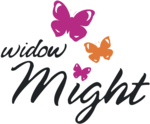Quantity is better than Quality
Taken from From One Widow to Another, ©2009 by Miriam Neff. Used with permission of Moody Publishers.
While ‘quantity’ is certainly valued in our culture for most aspects of people’s lives, it should not be true when it comes to friendships. It’s hard not to get caught up in the ‘quantity’ notion when we think of the messages bombarding our minds daily.
The old message from our adolescence is that the cool person is the popular one with lots of friends. They get voted into office, queen of this, and president of that. The person of few friends is, well, the wall flower, somehow less worthy than the popular girl.
Many handbags, shoes, shirts, or any product is better than few. Buy a ‘look alike’ of the real thing for less money so you can buy 10. I love the idea of a bargain, but some folks get swept into overspending to have a quantity of everything. I was especially aware of this in the last decade of my counseling in our public high school. I saw girls in my office whose wardrobe costs kept them from spending money on college applications. And they had a different look every day. Which has the greatest potential for future returns? The ‘quantity now’ message is powerful.
We as widows are especially vulnerable to the ‘quantity’ myth because of our loneliness. I understand. When I compare my past of counseling in a high school, i.e. talking with and interacting with people all day, then coming home to life with my husband, this life is unreal. Bob in my life meant participating with him on social events connected with the boards he sat on, his extensive network of coworkers, our personal friends, and most significantly, his presence in my life 24/7 as my best friend! These days in retirement and widowhood are quiet beyond belief. I treasure more than ever my precious handful of friends. However, I also enjoy solitude.
Not all widows do. Be careful if you are one of those more intense people persons. You are more vulnerable to connecting with people for quantity sake not quality. Then you are more likely to be dipping into the ‘comrades’ group. This is OK if you share a common mission. But you may also dip into the ‘user’ group. This will eventually bring disaster. Being desperate for companionship creates a blindness to the user aspect of new relationships. Friends and family often recognize users before widows do. Disaster is a sure thing; the only aspect in question is, will the disaster happen sooner or later?
How can we choose what friendships to cultivate from those remaining?
How can we find new people with whom to cultivate mutually enriching relationships?
How can we avoid the users without painful blunders to discover who they really are?
We need to become good people pickers.
How can we tell we are vulnerable to becoming involved in friendships not in our best interests? When we excuse behavior in the foolish category we are vulnerable. When we accept/tolerate behavior not in our best interests we are vulnerable. Often before we recognize the behavior we sense an uncomfortable feeling.
Do you feel emotionally and even physically drained just being around a person? That is a warning flag.
Do you find yourself rationalizing his/her behavior?
“She/he says” … and refers to future behavior that will be different from what you are seeing now.
For example:
“I’ll be paying off that maxed credit card when I get my raise in three months.”
“I’ll be able to call you more often when this work project is done.”
Remember behavior never lies.
“He/she does that because” … and you rationalize poor behavior by past circumstances.
“I’m partly to blame because” … and you accept poor behavior of another person because of your poor behavior.
Solution to the “I’m partly to blame syndrome:”
- Straighten up your act, Girlfriend, and see if his or hers changes! OR
- Don’t inappropriately accept blame to help someone else look better.
Does this process seem hard at times? Does it require more focused attention than you feel you have? Becoming a good people picker is not easy. If you wonder if it’s worth the effort, talk to a widow who invested time in a new friendship that proved to be controlling and then ended badly. My friend who experienced this, in her loneliness let her new friend plan some vacations and become involved with her family. As their ‘friendship’ developed, my friend’s calendar was consumed with another person’s wishes and agenda. Becoming strong enough to say ‘No thanks’ was hard and the ending rocky. Better invest the energy upfront and avoid the painful ending.

Becoming strong enough to say ‘No thanks’ was hard and the ending rocky.
